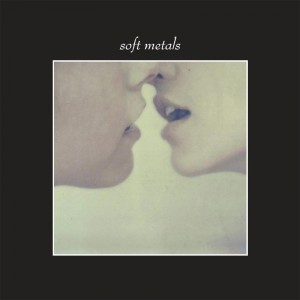What with the retro-flavoured synth revival in full swing, it’s getting to the point where it’s possible to isolate a series of reference points that hold true for a striking volume of 2011’s underground(ish) music. The most obvious is the whole sepia-tinted, bottom-of-a-swimming-pool approach that’s proceeded to drench bedroom pop since last year’s emergence of chillwave (itself frustratingly responsible for eclipsing a great deal of excellent music working a similar aesthetic in genuinely interesting and provocative ways, rather than treading through insipid nostalgia trips clad in swimming shorts and big sunglasses).
Then there’s another swathe of music taking audible influence from 70s and 80s sci-fi and horror flicks – the likes of Hyetal, Xander Harris and Gatekeeper in particular have cited John Carpenter’s soundtracks as a major inspiration, and Leyland Kirby’s recent Intrigue & Stuff records harked back to the uneasy drift of Vangelis’ Blade Runner soundtrack. It’s certainly possible to hear the latter’s influence in the music of Portland techno-pop duo Soft Metals. ‘Psychic Driving’, which opens their self-titled debut album, operates on several levels at once, eventually landing somewhere close to the melancholy, towering grandeur of Blade Runner‘s opening credit sequence. Their music’s certainly retrogazing, using a lot of older analogue gear for a convincingly vintage sheen, but like kindred spirits Ford & Lopatin they manage to avoid the trappings of simple copyism. That’s thanks largely to their compositional style – Patricia Hall and Ian Hicks take an additive approach, where complementary layers of percussion, melody and texture are stacked upon one another until all available space is used.
Although the actual synths the duo employ tend towards breezily melodic, having so many individual elements operating at once gives their tracks an illusion of unusual weight. Thanks to the slip-slide action of separate layers against one another, though, they actually end up as lucid, deliciously fluid backing tracks through which Hall’s vocals swim, only semi-engaged with the rhythms that lock them into place. Take third track ‘Voices’, a convulsive slab of machine funk cut through by ominous metal chatter – with its jittery 808 patter it could have easily ended up a jackin’ dancefloor track, were it not for a soothing stream of electric blue synth and voice that runs right through its heart. The instrumental sketch ‘Celestial Call’ detaches itself further still from its percussive spine, the majority of its mass accumulating near its surface, like a slightly more rhythm-driven take on Dan Lopatin’s Oneohtrix Point Never project (in line with his far more propulsive upcoming album Replica).
It’s not until the album’s halfway point, the cosmic nightdrive of ‘The Cold World Melts’, that percussion takes total control of Soft Metals‘ helm – and the results, from there onward, are subtly stunning. It’s when their music toys with the notion of club functionality that Hall and Hicks sound most at ease; ‘Cold World’ sounds like an improvised live jam dubbed to tape with all the errors left in, and flows beautifully as a result. With Hall’s half-obscured vocal occasionally punctuated by the acidic jab of a 303 (or something similar), it comes across like a pop-savvy take on Model 500’s autobahn-hogging 1988 track ‘Interference’. Indeed, it’s the influence of first and second wave Detroit techno, that wonderfully synthetic crackle that defined early tracks from the likes of Juan Atkins, Shake and Carl Craig, that really informs Soft Metals’ music. When it’s put to the service of crafting actual dancefloor tracks – the fuzzy-edged vocal house of ‘Eyes Closed’, the skittish electro of ‘Pain’ – the effect is electric, and it’s easy to imagine these tracks mixed alongside some of Atkins’ more recent material since his revamp of Model 500. In remaining so audibly in thrall to dance music culture and the past/future sounds of Detroit, Soft Metals’ closest current contemporary is probably Laurel Halo, whose explorations are similar in tone and texture, though further down the spiral into inner space. However, where Halo’s Hour Logic EP has a distinctly utopian feel, evoking the promises of a future improved by advanced telecommunications technology, the best of Soft Metals is far darker in tone – closer ‘In Throes’ is a perfect example, its sluggish beat crumbling away at the edges to expose hints of dissonance at its core.
If all of this sounds like reducing Soft Metals to the sum of their influences, it’s not meant to. While the use of vintage synths (or modern equivalents that offer convincing mimics) is hardly a rare thing at the moment, there’s an energy and complexity to Hall and Hicks’ music that’s largely lacking in the majority of their peers. For a start, it’s incredibly sexually charged, Hall’s presence throughout the record a sultry ghost occasionally flirting with exposure before flitting away into the background chaos again. It’s tempting to think that might be something to do with the story behind the duo – now a couple, they met through starting to make music together. And the engagement with dance music and half-improvised feel lends it an irresistible forward momentum, something that picks up pace throughout the album to exhilarating effect; the album’s second half in particular creates a disconcerting sensation of constant acceleration, until it finally collapses into its closing throes and falls away.


